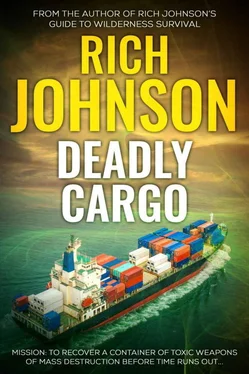By an agreement that had been struck after a long history of bloodshed, the Pashtun people of the tribal areas formally became part of Pakistan. While they were granted a seat in parliament, tribal laws forbade the existence of political parties, so only the tribal elders were allowed to vote. In every case, they passionately rejected any government interference that threatened their autonomy. Even though the region received financial support from Pakistan, the people refused to submit to Pakistani laws.
It was an arrangement that suited the society of gangsters, weapons dealers and drug lords perfectly. Opium was their cash crop, produced and processed into heroin, then distributed through a network that fed the drugs into the international market. Money from the sale of narcotics was converted into whatever staples the people needed. Besides drugs, the second most important industry was weapons. Tribal law and social custom required that every man have a gun, and the area flourished as a center of arms production, both for local use and to supply terror organizations such as al-Qaeda. There were no taxes collected on money earned or goods sold. Internal fighting was a way of life, as rival clans warred against each other for power and control of the weapons and narcotics industries, and disputes were most often settled with guns and axes. The bloodstained landscape was a monument of pride and honor among the men, and the children were raised with battle and bloodshed in their hearts.
Sorgei Groschenko was not happy living in such a barbarous society. Coming from a strictly controlled Soviet nation, this unstructured culture struck him as being completely unhinged and disconnected as it operated seemingly without rules or direction. He longed for structure and order, and in this place nobody knew from one day to the next who was in charge or what the rules were. It disturbed him greatly as he labored in his makeshift lab.
Not only that, but he was cold again. There was no heat or insulation in the tiny mud brick house where he worked, and he was beginning to remember the worst days of Siberia all over again. Bitter cold penetrated the walls during the day, and at night it was worse as he shivered himself to sleep on the thinly padded pallet, covered only by a single wool blanket.
Why couldn’t these terrorists set up shop on the warm shores of the Black Sea, he wondered. Why did they always choose the most inhospitable patch of ground on the planet to hide out? But at least he was well paid, and for that he was grateful. There was nothing about this project that he wanted his name attached to – no fame or glory this time – so the money had to be sufficient to fill the hole in his inadequately gratified ego. The sooner this project was completed and he got out of this frozen purgatory, the better.
“How is it coming?” Husam al Din asked as he stepped into the small room that Sorgei used as a lab.
“Slow,” Sorgei replied, without taking his eyes away from the microscope. The counter was scattered with an assortment of Petri dishes, beakers, a small butane burner and an incubator for growing his crop of deadly bacteria. “The secret is to get the biotoxin to pace its growth after it is released, so no one even suspects it is there until it has a chance to spread from person to person. If people start getting sick too quickly, the government will issue a quarantine to contain it, then the impact will not be so great.”
“Yes,” Husam al Din agreed. “But when do you think you will have it?”
Sorgei Groschenko looked up from the microscope, massaged his tired eyes with his fingers and heaved a sigh of frustration. “I wish I could tell you that I have it already.”
“Yes, but when? There are many plans to be set into motion, but I can do nothing until you are ready with the toxin.”
Sorgei looked up from the microscope. “Well, I’m doing all I can do. I’m working around the clock, as if there were anything else to do in this paradise resort.”
“You are supposed to be the best.” Husam al Din was agitated. “You are being well paid.”
“Look, these experiments take time. Each strain must be fully developed, then tested to see how they respond.”
“Yes,” the Arab agreed, “for the plan to work, the toxin must travel unnoticed from host to host by direct contact. It must have a long incubation period so it will not show itself too quickly. There must be enough time for the germ to spread across a wide area before even the first host becomes ill.”
“The way I am designing this bacteria, anyone who comes in contact with it either by touch or by inhaling it, will become a host. Once inside a host, the bacteria will become active and begin to work, but there will be no symptoms for many hours. Anyone else who comes into contact with the host will become infected. And the disease will be passed along from person to person by carriers traveling on airplanes, trains or buses across the country. By the time the illness begins to manifest, a few days will have elapsed, and by that time thousands will be infected without knowing it. The germ will spread like a deadly wind, impossible to stop and moving so fast that no one will be able to determine where it came from.”
Husam al Din nodded. “That is the beauty of this weapon. Before anyone realizes the disease has arrived, it will be too late to do anything about it.”
Sorgei Groschenko smiled and looked into the twin microscope eyepieces again. “This is the culmination of the work I was doing before the Soviet Union fell. I am anxious to see it in operation.”
“I, too, am anxious,” Husam al Din reminded the scientist by tapping on his wristwatch.
Soregi raised his head. “I can’t rush any faster than I am going.” He hesitated, then continued, “But I am making progress. I can’t promise anything, but I believe I will have what you need within a few days.”
“A few days,” Husam al Din repeated. “Then I will begin preparations for five days from tomorrow. I am generous.” He turned and left the room, closing the door behind him and headed over to Asman Massud’s shanty.
Asman Massud bent over his workbench, safety glasses protecting his eyes from tiny fragments of aluminum being sprayed from the working end of a high-speed rotary tool that buzzed in his hand. An overhead light hung low over the aluminum tube he was concentrating on. He flipped the switch and the tool went silent. Laying it aside, he picked up a thin aluminum disc that was shaped with beveled edges and tested to see if it fit in the end of the tube. He fidgeted with it, pulling it out and pushing it in several times, testing the resistance and fit.
A cold wind hit Massud in the back as the door swung open and Husam al Din stepped into the shop. The workplace was nothing more than a back room in a small house across the street from the mud brick structure with the lab where Sorgei was at work. And that one was only a little way from the one where Josh Adams was housed. Husam al Din was careful to keep the key players separated into their own spaces; no need to let Sorgei and sergeant Adams discuss anything without his supervision.
The machinist felt the breeze and heard a rustle behind him and turned to see al Din. “Ah, good,” he said, “I have been wanting to ask you some questions about the vial that will hold the toxin. It will have a bearing on how I attach the explosive device.”
Husam al Din clapped his hand on Massud’s shoulder. “It is good to have such a thoughtful man working on this project – someone I can trust.”
The machinist smiled at the comment. In this part of the world, smiles and compliments were rare. Conditions of life were too bitter for the frivolity of smiles. Relationships, even between husband and wife, survived more out of interdependence than love. Those who might be friends under different circumstances had to be satisfied with relationships of mutual misery, working toward a common objective such as a planned martyrdom to create a bond of mutual support that kept everyone going.
Читать дальше












